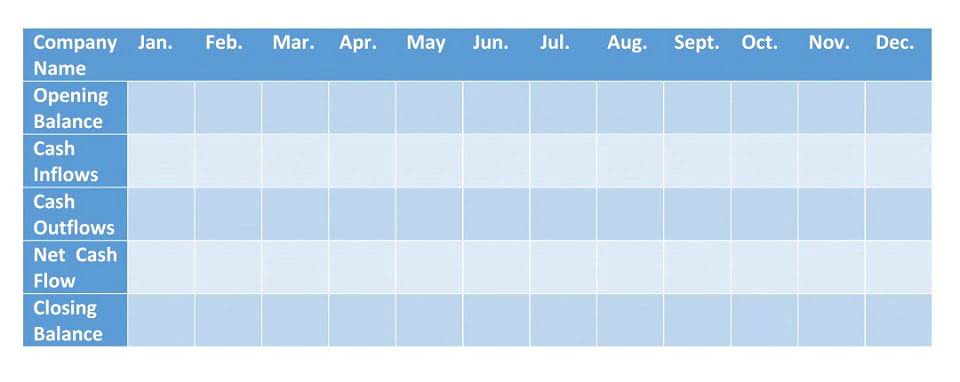
Many business owners are great at providing the product or service that is the backbone of the business. But business owners aren’t always experts at the financial aspects of running a business. Copies of business bank accounts can be sent to accounting firms that work with bookkeepers to maintain accurate cash flow records. Accounting firms also create profit and loss statements that break down key areas of costs and revenue streams.

These services provide independent validation and assurance to stakeholders, including investors, lenders, and regulators, about the reliability of financial statements. Discover how accounting firms help businesses manage their finances and achieve financial success. When hiring, what do accounting firms do accounting firms are like many businesses and are looking for a combination of credentials, experience, and the ability to perform the necessary tasks. However, in an increasingly competitive hiring market, many firms are beginning to look at soft skills as valuable for new hires.
How can an accountant help with tax planning and preparation?
Accountants need both a bachelor’s degree in accounting or finance and experience in the field to take the exam. The exam is tailored to each state’s requirements and is administered by the state boards of accountancy. After the Great Depression and the formation of the Securities and Exchange Commission (SEC), all publicly traded companies were required to issue reports written by accredited accountants. A certified internal auditor doesn’t need a license to practice, nor does a certified management accountant. An accountant’s duties often depend on the type of educational background and designation they receive. Most professionals in the field possess bachelor’s degrees and—if employed by a corporation—may require certification to move up within the firm.
Together, they amass more than $100 billion in earnings and have continuously experienced growth year-over-year. There is no question why many graduates and entry-level professionals strive for accounting careers at these firms. Some accounting software is considered better for small businesses such as QuickBooks, Quicken, FreshBooks, Xero, SlickPie, or Sage 50. Larger companies often have much more complex solutions to integrate with their specific reporting needs.
What does an accountant do?
However, some of the most successful niches are the ones serving fellow professionals such as doctors, dentists, attorneys. In most cases, a website is static and allows businesses to transmit basic, evergreen information such as phone number, services provided, and credentials. Social media, on the other hand, can drive business in a longer and more indirect fashion. The expertise and skill you bring to service are of more importance than just an hour of work for clients. Pricing your abilities based on knowledge is not only good for your business but is ultimately valuable for your clients as well.
- However, an operating agreement provides benefits like conflict resolution and LLC formalization.
- In summary, valuations and appraisals are vital financial services provided by accounting firms.
- A CPA firm has at least one certified public accountant on staff and, most likely, more.
- Accounting firms utilize various valuation methods and techniques to assess the value of assets or businesses, such as discounted cash flow analysis, market multiples, and comparable transactions.
- Modern accountants should develop an analytical mindset in order to keep up with trends in the industry and remain competitive in the workforce.
- As such, an industry-wide push for transparent reporting has influenced the financial reporting process.
Services based niches as opposed to manufacturing-based are also on the rise. For example, real estate professionals, landscapers, and farming clients are becoming a more prosperous and unique way to do business. Finding the best business structure for your accounting firm is a critical part of not only ensuring success but helping to minimize both your tax burden and your risk. Accounting and bookkeeping services (as well as other service lines, such as simple tax preparations) are almost universally charged as a fixed fee, and there is a market expectation for that pricing structure. So, the simple answer to the question is, yes—many accountants can and do work from a home office. This will influence many other decisions, including the function of the services you provide, whether you want a physical or virtual location, your target demographic, and the location of your business.
Forensic Accountant
Larger firms tend to be paid with longer payout periods, sometimes more than 10 years. Buyers tend to evaluate the profitability of a purchase based on the cash flow that will be generated. The longer the payout period, the smaller the purchase payments, therefore, the greater the annual cash flow from the deal. A deal that will take three years to throw off any positive cash flow is hard to sell to the partners of a buying firm, especially given the upfront integration costs that the firm will incur, thus affecting the multiple.
Aside from auditing services, the Big Four offer tax, strategy and management consulting, valuation, market research, assurance, and legal advisory services. They are the leading source of tax law interpretation and experts on changes in accounting and auditing standards. Some of the most attractive attributes encouraged by the ADPC and appealing to the Big 4 include a high GPA and networking skills. The salaries for Big 4 accountants vary widely, however, depending on education, experience and organization. They can range starting annually from the low-to-mid $50K with at least two years of experience and reach close to $500K after career growth and job title changes.



